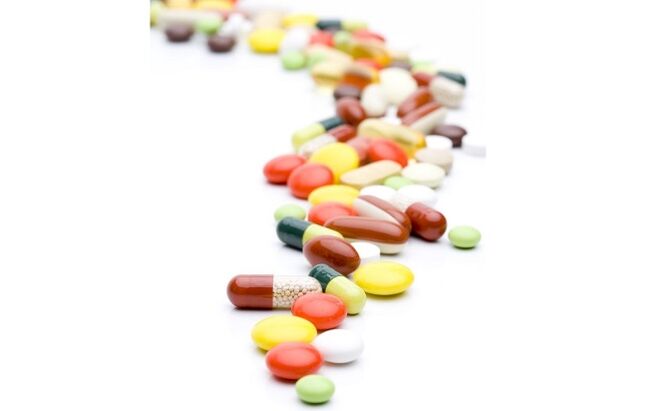Attitudes towards the treatment of prostate adenoma and prostatitis have changed significantly in recent years. Such a diagnosis is no longer a clear indicator of surgery, and drugs have proven to be quite effective. This, of course, significantly prolongs the recovery process, but patients do not have to go through a long recovery period after surgery. Prostate function is regulated by tablets. The purpose of such treatment is to help the man cope with the aggravating symptoms as much as possible.
In general, medications perfectly cure the initial stage of prostate adenoma and relieve complications in later stages. This can be explained by the fact that drug methods can slow down or completely stop the process of hyperplasia of organ tissues.
Medication for prostate adenoma is not mandatory, so all patients have the right to refuse to choose surgery. Patients are often motivated by the fact that such drugs have many side effects.
If medication is refused, the following complications are likely:
- the progression of the disease and the worsening of symptoms that are already present;
- decline in the quality of vital signs;
- an increase in the need for surgery;
- acute signs of urinary retention.
Modern studies have shown that drugs used to treat prostate adenoma and prostatitis have become more gentle on the general body and detrimental to the focus of the inflammation. Now surgery is used only as a last resort when there are pathological changes in the organ and significant difficulties in the urination process. In addition, surgery cannot be avoided if the kidneys are damaged.
Indications for medication
Medicines to relieve the symptoms of adenoma and prostatitis are selected when:
- hyperplasia recurs after planned surgery;
- the age of the patient does not allow for surgery;
- a man voluntarily writes out rejection of surgery.
However, there are cases where medication is categorically contraindicated because it cannot provide immediate relief in an emergency.
Medications for treatment
As the symptoms of prostate adenoma and prostatitis increase, a number of medications are prescribed that can alleviate the condition in men. Most effective in moderate disease. All medicines used to treat the prostate can be divided into two main groups:
- alpha-blockers that have a relaxing effect on prostate muscles;
- inhibitors reduce prostate volume and slow or stop further growth.
Combination therapy, which is used in the case of a significant increase in prostate volume, is also relevant in modern medicine. The combination of drugs avoids surgery. The only downside to this treatment is that there are side effects to two types of medication at the same time. Drugs used to treat the prostate may lower blood pressure, so such drugs are not suitable for hypotensive patients.

Tamusolosin-based drugs are effective drugs for the treatment of prostatitis and prostate adenoma. They bring quick relief, relieve the first symptoms and help cope with the main cause of the disease. In addition, these drugs show a minimal number of side effects.
Surgery can be avoided by taking medicines based on 5-alpha reductase inhibitors.
Antibiotic therapy
Antibiotics against adenoma are used only if they are associated with an acute bacterial infection. Antibiotics also help get rid of fever, chills and fever. The general condition is getting better. Prostatitis completely relieves fluoroquinolones.
Antifungals are often prescribed after antibiotics. This is due to the fact that antibacterial drugs disrupt the body’s microflora, provoking the growth of fungi.
Essential oils
Often, patients try to recover from prostatitis and adenoma on their own without resorting to medication and surgery. Of course, there are folk remedies that can help in this situation. You may want to consider the most effective and most commonly used of them. Essential oils and especially pine oil help relieve the inflammatory process and remove the main symptoms of the disease.
To make the folk remedy, sea buckthorn and pine oil are mixed in equal proportions and moistened with a gauze pad. It is very important not to overdo the oil. In total, no more than 10 drops per session. The swab is inserted into the anus and only removed until the next defecation. You can also order pine oil candles from pharmacies. The duration of treatment is about 25-30 days.

Pine oil can kill bacteria, warm the area of the enlarged organ and act as an excellent painkiller.
Cocoa butter based candles are widely used where 10 drops of pine oil are added. The drug is also given into the rectum at night. It relieves pain, inflammation and reduces the size of the prostate. Sexual function is restored and the general condition of the body improves. This method has been tested several times and can therefore be considered scientifically proven.
In traditional medicine, prostate massage is used with the addition of pine oil. Of course, this procedure should only be performed by a qualified doctor. Side effects are possible in the form of a burning sensation. In this case, it is better to refuse such treatment and look for an alternative.
There are a number of methods available to fight prostate adenoma and inflammation of the prostate, the most important thing being to decide on the test and starting treatment. There is no cause for concern here because medication and the use of folk remedies are better than postoperative recovery.



























